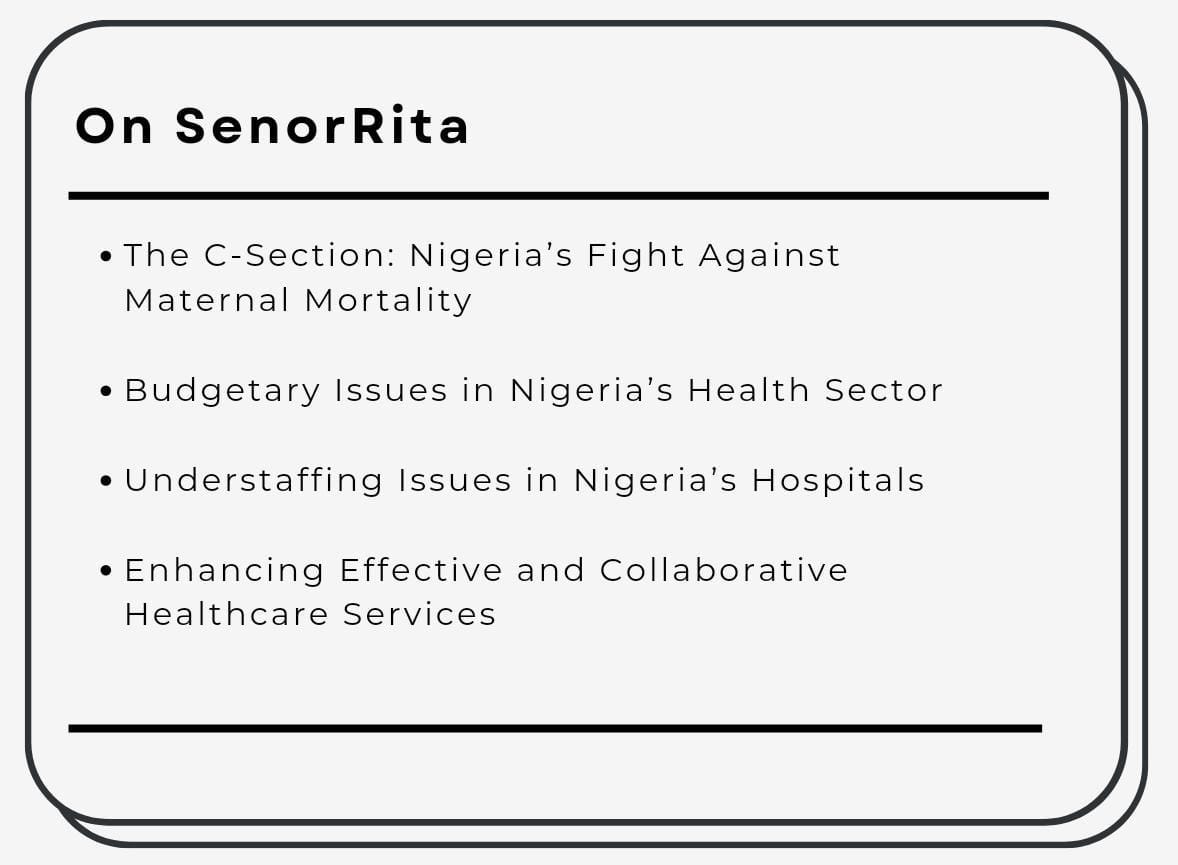The Nigerian government through the Minister of Health and Social Welfare, Muhammad Pate, has announced that Caesarean sections will now be available at no cost to women in need, as part of its efforts to reduce maternal mortality rate in the country.
This free caesarean policy aims to reduce the maternal mortality rate and improve the quality of healthcare services for pregnant women in Nigeria. However, this policy may not be feasible in Nigeria due to the Nigerian health sector's underlying issues.
Maternal mortality refers to the death of a woman while pregnant, due to complications during labour or following childbirth.
A Caesarean delivery (also known as a C-section) is the surgical delivery of a baby. It involves one incision in the mother’s abdomen and another in the uterus. It is often carried out to rescue emergencies when complications arise during childbirth.
Over the years, Nigeria has recorded high levels of maternal mortality across its 36 states and FCT. The situation is yet to improve significantly due to the underlying issues facing the health sector.
About 100,000 women lost their lives during birth and after birth complications across different parts of Nigeria in 2023. Imo state has the highest record of maternal mortality in the country with 1837.1 per 100,000 losing their lives during and after childbirth.
Issues such as understaffing, low budgetary allocation, insufficient funds and other important policies that are needed to strengthen the Nigerian healthcare system have not been implemented.
Among other countries, Nigeria ranks third in the world with the highest maternal mortality rate, recording 1,047 deaths per 100,000 births.
Budgetary Issues in Nigeria’s Health Sector
Nigeria has experienced a notable increase in healthcare funding; however, achieving sustainable health financing is still a continuous challenge as budgets in the health sector need to be allocated appropriately.
The Nigerian health sector remains underfunded and has not yet met the 2001 Abuja Declaration target of allocating at least 15% of the country’s budget to health.
From 2021 to 2024, the health budget has continued to grow, but the sector still faces many imbalances.
Understaffing Issues in Nigeria’s Hospitals
Nigeria’s health sector is lagging in terms of staffing. There are insufficient numbers of health workers across different health sectors, made worse by the mass exodus of health workers to various parts of the world.
Research by Dataphyte and analysis on the distribution of hospitals and population projections across Nigeria revealed that Nigeria has an average of 17 hospitals to 100,000 persons.
Based on data from the Nigeria Health Facility Registry (NHFR), Nigeria has a total of 39,914 operational hospitals and clinics. This number combines private and public hospitals across the primary, secondary and tertiary levels of care.
For the policy to be effective, there has to be recruitment of health workers such as doctors, medical specialists, nurses and other health workers. For instance, the number of medical doctors in Nigeria varies across different parts of Nigeria, and is yet to meet up with the United Nations recommending 1:600 doctors to patients.
States like Lagos, FCT, Rivers, Enugu, Oyo, Edo, Kaduna, Anambra, and Ogun have the highest number of medical doctors while other states are below average.
However, the statistics do not mean all doctors are gynaecologists. It is the total number of doctors in each Nigerian state.
For effective healthcare delivery in Nigeria’s healthcare system, especially to reduce the maternal mortality rate, it is expected that skilled attendants at childbirth and essential obstetric care should be accessible, alongside service quality improvements.
Enhancing Effective and Collaborative Healthcare Services
Nigerian states like Ogun, Oyo and Ondo have initiated sustainable health policies aimed at reducing maternal mortality rates in their respective states. These states initiated health care services such as Ibidero, Tomo-Tiya and Abiye to reduce maternal mortality in these states. The service is all-inclusive and specially designed for pregnant women residing in the states respectively.
However, the World Health Organisation advised that ensuring women's access to maternal health and other sexual and reproductive health services also requires addressing discriminatory laws, policies, practices and gender inequalities in health care and society that prevent women and adolescents from accessing good quality services.
Also, the agency advised that factors contributing to poor quality health systems such as poor quality of care, mistreatment and abuse, insufficient numbers of and inadequately trained health workers; shortages of essential medical supplies; and the poor accountability of health systems should be looked into to improve maternal health, barriers that limit access to quality maternal health services, and identify and address these issues at the health care system and societal levels.
A medical expert, Dr Oluwadunsi Ebunoluwa, advised that the Nigerian government should recruit and train health workers in order to upgrade their skills towards ensuring quality healthcare delivery in the country.
She added that, ‘‘all government hospitals should be upgraded in a way that will enable them to provide basic and essential obstetric care services.’’








